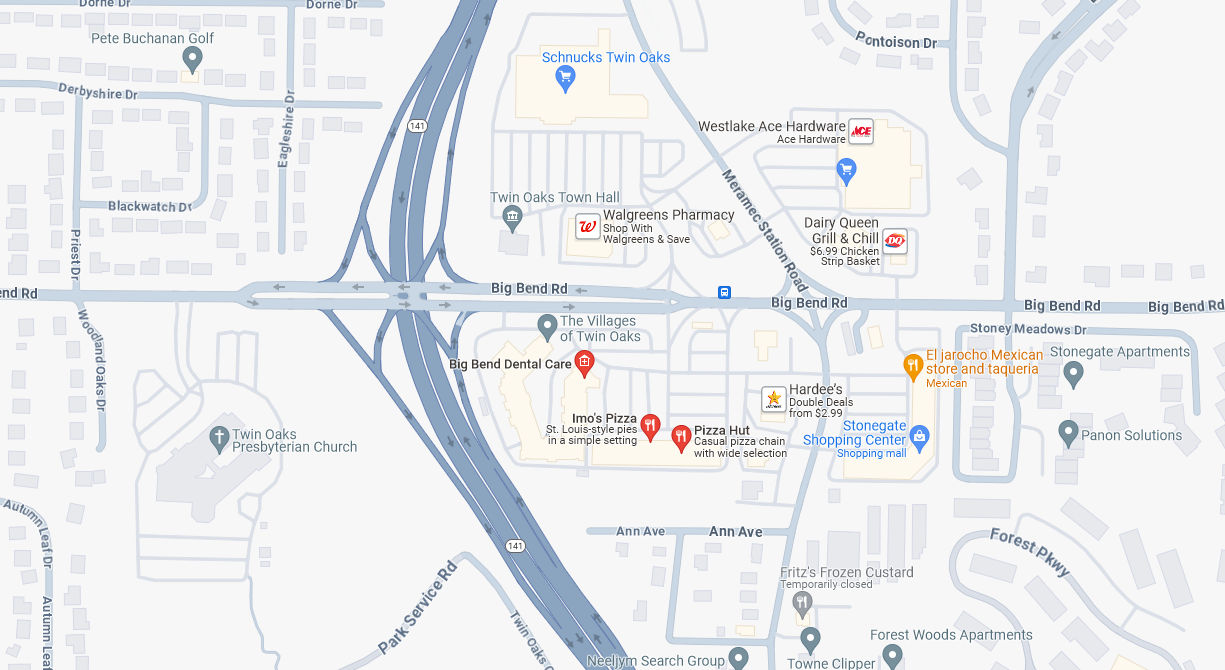Snoring and Obstructive Sleep Apnea Treatment
in St. Louis MO
Learn about Obstructive Sleep Apnea and Snoring. It’s important to your health, or to the health of someone you care about. We can help find the best solution for you.
Obstructive Sleep Apnea and Snoring
Obstructive Sleep Apnea (OSA) occurs when the tongue and soft palate relax into the airway during sleep and prevent air from flowing freely. When the airway is sufficiently blocked, our body’s built-in survival instinct is triggered and we awaken enough to breathe. As we fall back to sleep, we again relax, OSA re-occurs, we reawaken and the cycle continues throughout the night.
The waking episodes can happen a few times a night (mild apnea) to many times an hour and can last for seconds or several minutes while the body struggles to breathe. The resulting disruption to sleep can produce any number of effects on the body from a simple headache and sleepiness to more severe health issues, such as a link to heart disease and depression.
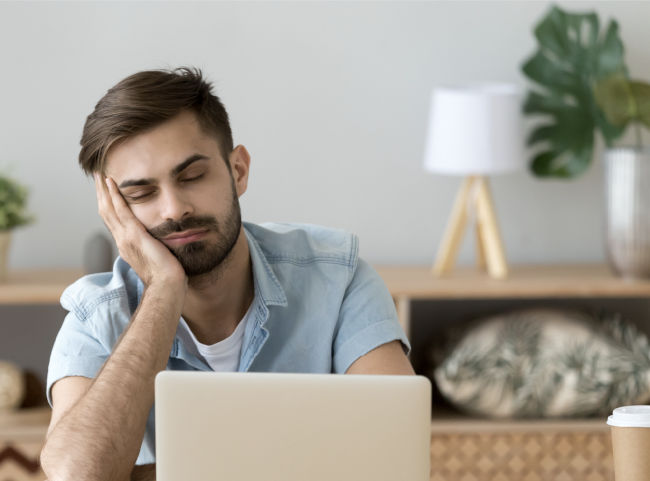
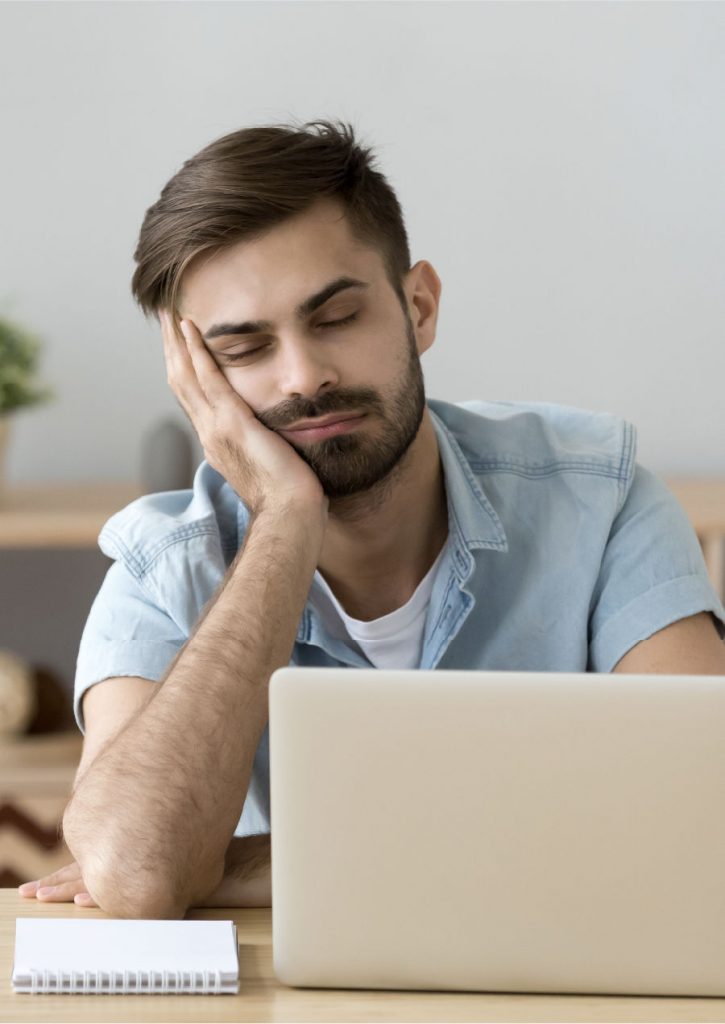
If you’re tired of being tired,
contact us today!
Let’s discover if you’re struggling with the effects of sleep apnea and what we can do about it.
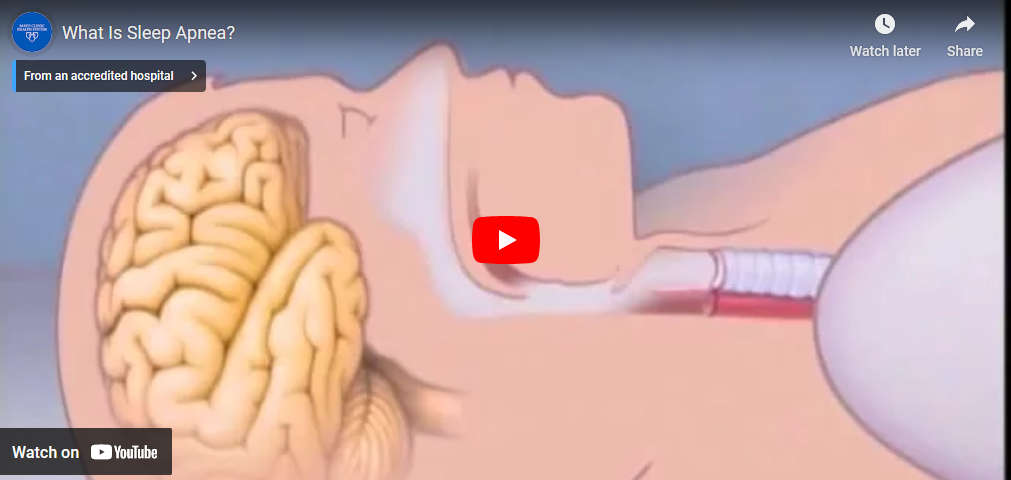
Find out what you can do for your TMD.
Here are some numbers that might keep you awake at night:
Snoring has been measured at anywhere between 4 and 87 decibels
- it can be louder than a jackhammer that comes in at 85 decibels,
- almost as loud as a lawnmower at 95 decibels and
- around 2/3’s of the way to the threshold where actual ear pain occurs
- in a range between 130 and 140.
Other sleep statistics that signal the importance of sleep:
The National Sleep Foundation cites sleep deprivation and its effect on work performance as the basis for $18 billion per year in lost productivity. (Another study suggests this cost is closer to $100 billion.)
The National Highway Traffic Safety Administration estimates that fatigue is a factor in at least 100,000 auto crashes and 1,500 deaths each year.
In 2005 it was reported that 4% of drivers who have had an accident or near accident admitted they were too tired, or actually dozed off while driving. Other surveys suggest that number may be as high as 37%.
How can we help you?
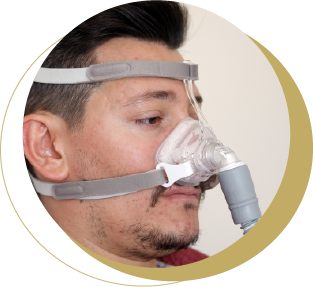
I hate
my CPAP
I hate my CPAP
It takes some time to get used to sleeping with a CPAP. It will start out being uncomfortable, but if you have given it time, tried different masks and can’t find one that you like, adjusted the pressure, and followed all recommendations to establish a relaxing bedtime routine, and you’re still frustrated and not getting enough quality sleep at night, lets discuss other solutions to your obstructive sleep apnea.
It’s okay to hate your CPAP. It’s not the only solution available to you. The best treatment for you depends on the severity of your sleep apnea, your individual needs, and your medical history, but our office offers a range of different oral appliances that might make all the difference for you.
The choice of which appliance to be used is based on your bite, jaw size, and range of motion, your tongue and soft palate size, whether you clench or grind your teeth during sleep. Click Read More to learn about oral appliances. Be sure to call us for an appointment to talk about solutions for you.
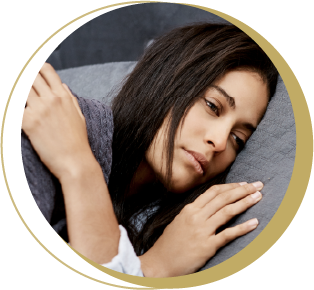
I can’t sleep
at night
I can’t sleep at night
If you aren’t able to sleep at night, come in for a consultation about sleep apnea. It’s likely that your sleep is being disrupted by loud snoring, or repeated pauses in breathing. Symptoms of sleep apnea don’t let you rest at night.
The inability to sleep well at night is a main indicator of sleep apnea because when your airway becomes fully or partially blocked, your body will constantly wake you up through the night so you can get your next breath of air.
Not being able to breathe increases stress hormones in your body. When you stop breathing, your body senses a lack of oxygen and responds by releasing hormones like adrenaline and cortisol. These cause your heart rate and blood pressure to increase. It’s no wonder you aren’t able to sleep with so much stress in your body.
Take our quiz to discover if you have a high indication of sleep apnea. You can also contact us to set up a consultation with Dr. Postol. We’ll help you find a solution so you can finally get some good sleep at night.
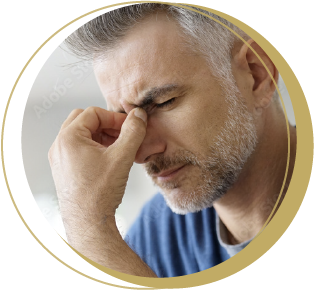
I wake up
tired
I wake up tired
If you’re waking up tired, there are several possible reasons why you could be missing out on a good night’s rest. Some medications cause fatigue, certain medical conditions like anemia, thyroid disorders, chronic fatigue syndrome, or depression can cause tiredness.
The most likely culprit is poor sleep quality. If your sleep is interrupted frequently during the night, a symptom of sleep apnea, or if you aren’t getting enough deep sleep because of sleep apnea, you will wake up tired, even if you’re getting your full 8 hours of sleep.
Your body will fight to breathe while your airway is compromised. It will release stress hormones to increase the energy your body needs to draw in enough oxygen to stay alive. Restorative sleep isn’t possible when your body is in fight mode.
We know its hard to know what to do, so please contact us for an appointment. We can help.
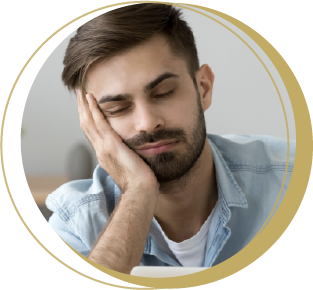
I fall asleep
during the day
I fall asleep during the day
Falling asleep during the day and feeling excessive daytime sleepiness, is a common symptom of sleep apnea. A blocked airway causes you to wake up frequently through the night. Even if you don’t remember it happening, your body is waking you up so you can take the next breath of air. Your breathing becomes shallow, or might even stop for brief periods of time, so your body increases its efforts to breathe. When your body has to work so hard to breathe for hours, you probably wake up feeling as if you’ve been exercising all night. With the right treatment, you can improve your sleep quality and reduce daytime fatigue caused by sleep apnea. We have solutions that could work for your individual needs. All you have to do is contact us for an appointment. We can help.

I hate my CPAP
It takes some time to get used to sleeping with a CPAP. It will start out being uncomfortable, but if you have given it time, tried different masks and can’t find one that you like, adjusted the pressure, and followed all recommendations to establish a relaxing bedtime routine, and you’re still frustrated and not getting enough quality sleep at night, lets discuss other solutions to your obstructive sleep apnea.
It’s okay to hate your CPAP. It’s not the only solution available to you. The best treatment for you depends on the severity of your sleep apnea, your individual needs, and your medical history, but our office offers a range of different oral appliances that might make all the difference for you.
The choice of which appliance to be used is based on your bite, jaw size, and range of motion, your tongue and soft palate size, whether you clench or grind your teeth during sleep. Click Read More to learn about oral appliances. Be sure to call us for an appointment to talk about solutions for you.
I can’t sleep at night
If you aren’t able to sleep at night, come in for a consultation about sleep apnea. It’s likely that your sleep is being disrupted by loud snoring, or repeated pauses in breathing. Symptoms of sleep apnea don’t let you rest at night.
The inability to sleep well at night is a main indicator of sleep apnea because when your airway becomes fully or partially blocked, your body will constantly wake you up through the night so you can get your next breath of air.
Not being able to breathe increases stress hormones in your body. When you stop breathing, your body senses a lack of oxygen and responds by releasing hormones like adrenaline and cortisol. These cause your heart rate and blood pressure to increase. It’s no wonder you aren’t able to sleep with so much stress in your body.
Take our quiz to discover if you have a high indication of sleep apnea. You can also contact us to set up a consultation with Dr. Postol. We’ll help you find a solution so you can finally get some good sleep at night.
I wake up tired
If you’re waking up tired, there are several possible reasons why you could be missing out on a good night’s rest. Some medications cause fatigue, certain medical conditions like anemia, thyroid disorders, chronic fatigue syndrome, or depression can cause tiredness.
The most likely culprit is poor sleep quality. If your sleep is interrupted frequently during the night, a symptom of sleep apnea, or if you aren’t getting enough deep sleep because of sleep apnea, you will wake up tired, even if you’re getting your full 8 hours of sleep.
Your body will fight to breathe while your airway is compromised. It will release stress hormones to increase the energy your body needs to draw in enough oxygen to stay alive. Restorative sleep isn’t possible when your body is in fight mode.
We know its hard to know what to do, so please contact us for an appointment. We can help.
I fall asleep during the day
Falling asleep during the day and feeling excessive daytime sleepiness, is a common symptom of sleep apnea. A blocked airway causes you to wake up frequently through the night. Even if you don’t remember it happening, your body is waking you up so you can take the next breath of air. Your breathing becomes shallow, or might even stop for brief periods of time, so your body increases its efforts to breathe. When your body has to work so hard to breathe for hours, you probably wake up feeling as if you’ve been exercising all night. With the right treatment, you can improve your sleep quality and reduce daytime fatigue caused by sleep apnea. We have solutions that could work for your individual needs. All you have to do is contact us for an appointment. We can help.






What a great experience! EVERY ONE was so friendly and kind. It’s so wonderful that Dr. Postol takes real one on one time for each patient. It makes you feel comfortable and heard. I appreciated that so much!
Sasha R.

The Need For Sleep
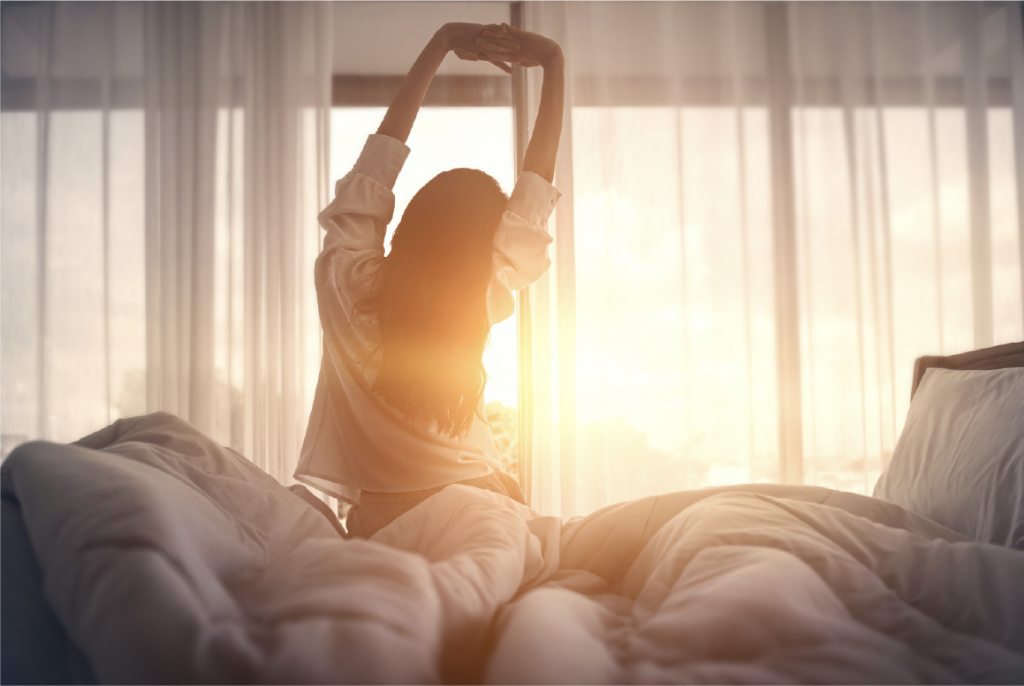
Obstructive Sleep Apnea (OSA) occurs when the tongue and soft palate relax into the airway during sleep and prevent your breath from flowing freely. When the airway is sufficiently blocked, our body’s built-in survival instinct is triggered and we awaken sufficiently to restart breathing. As we fall back into sleep, we again relax, OSA re-occurs, we reawaken and the cycle continues throughout the night.
The waking episodes can happen a few times a night (mild apnea) to many times an hour and can last for seconds or several minutes while the body struggles to breathe. The resulting disruption to sleep can produce any number of effects on the body from a simple headache and sleepiness to more severe health issues, such as a link to heart disease and depression.
Snoring
67% of adults snore, and while snoring may not seem to be the same health problem as OSA, it can be an indicator of sleep apnea. In addition, the noise of snoring can actually cause the sleeper and (more often) others to wake during the night. The resulting lack of sleep produces the same results no matter the cause.
In normal breathing the airway is clear and breath flows easily through the throat.
When obstructive sleep apnea is present, the tongue and soft palate relax into the airway and interrupt breathing.
In snoring, the tongue and soft palate relax sufficiently into the airway that it is substantially narrowed. As a result, air is forced through a smaller space and causes vibration of the surrounding tissue. The resulting noise can disrupt the sleep of both the sufferer and their sleep partners.
Are you tired
of being tired?
Download the first chapter for free
or get your copy of the book today!
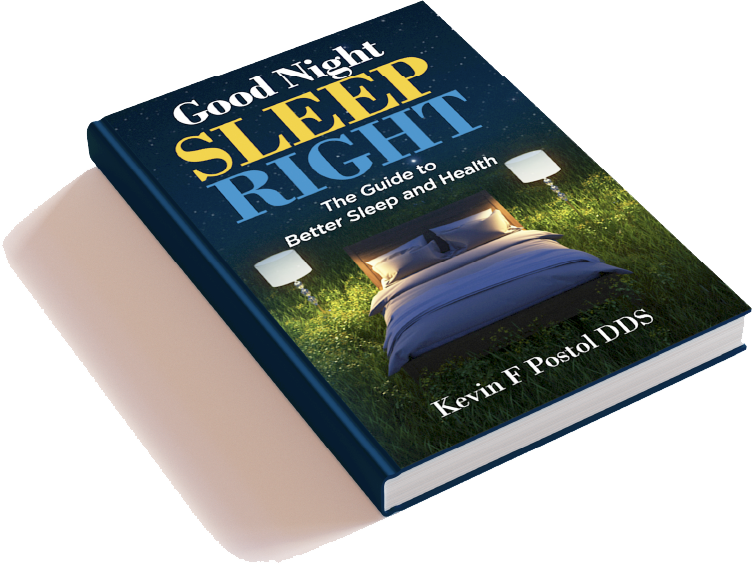
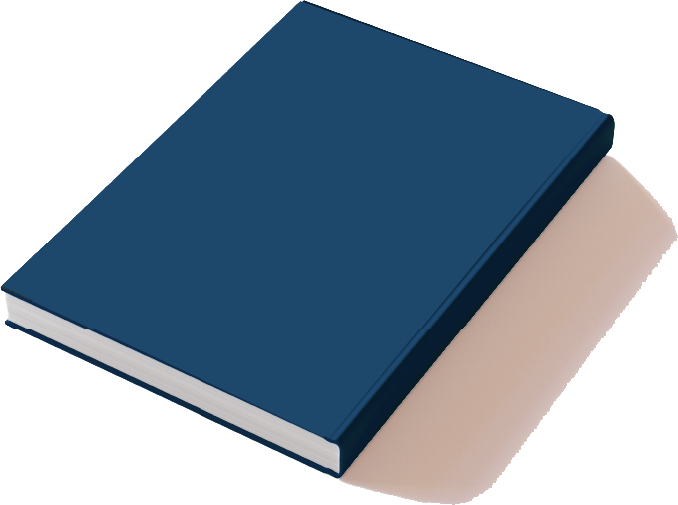
Call or Text!
